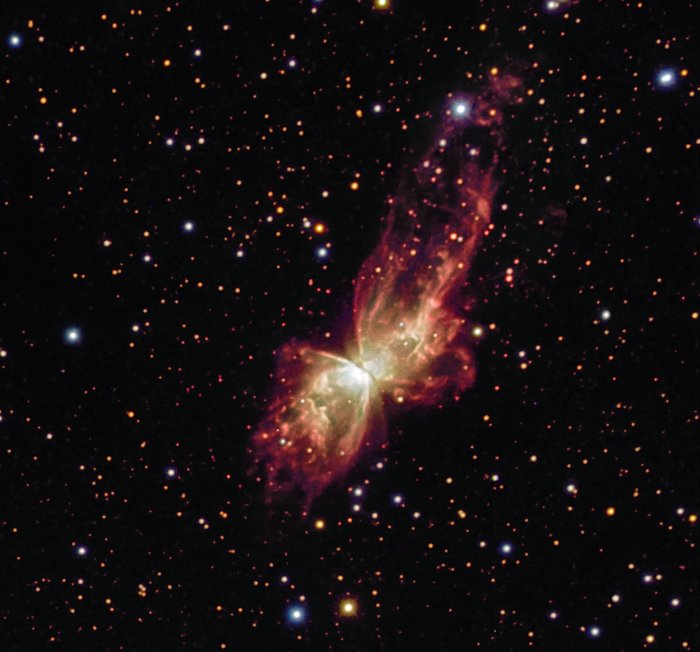Cosmic butterfly
The Bug Nebula, NGC 6302, is one of the brightest and most extreme planetary nebulae known. It is located about 4,000 light-years away, towards the Scorpius constellation (the Scorpion). The nebula is the swansong of a dying solar-like star lying at its centre. At about 250,000 degrees Celsius and smothered in a blanket of hailstones, the star itself has never been observed as it is surrounded by a dense disc of gas and dust, opaque to light. This dense disc may be the origin of the hourglass structure of the nebula.
This colour image, which nicely highlights the complex structure of the nebula, is a composite of three exposures through blue, green and red filters. It was made using the 1.5-metre Danish telescope at the ESO La Silla Observatory, Chile.
Credit:ESO/IDA/Danish 1.5 m/R. Gendler, A. Hornstrup and J.-E. Ovaldsen
About the Image
| Id: | eso-6302 |
| Type: | Observation |
| Release date: | 3 December 2009, 23:19 |
| Size: | 1200 x 1117 px |
About the Object
| Name: | NGC 6302 |
| Type: | Milky Way : Nebula : Type : Planetary |
| Distance: | 4000 light years |
| Constellation: | Scorpius |
| Category: | Nebulae |
Wallpapers
Coordinates
| Position (RA): | 17 13 44.27 |
| Position (Dec): | -37° 6' 16.25" |
| Field of view: | 6.22 x 5.79 arcminutes |
| Orientation: | North is 45.1° left of vertical |
Colours & filters
| Band | Wavelength | Telescope |
|---|---|---|
| Optical B | 451 nm | Danish 1.54-metre telescope DFOSC |
| Optical V | 539 nm | Danish 1.54-metre telescope DFOSC |
| Optical R | 651 nm | Danish 1.54-metre telescope DFOSC |

